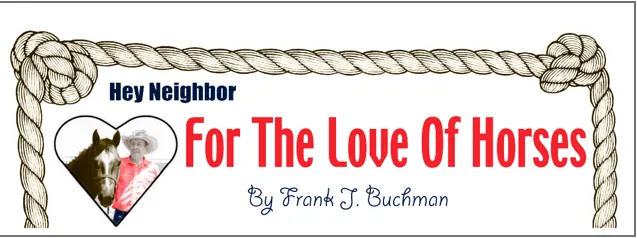By Frank J. Buchman
“Milk isn’t really made in a plastic jug at the supermarket cooler.”
Although many smirk at that remark, it makes some folks do a quick setback, especially the under 21 crowd, and elementary students even more so.
Common knowledge among baby boomers, whose families generally always had some direct or relatively close backgrounds related to food production, isn’t that way anymore.
“Most people are three to five generations removed from a farm,” according to LaVell Winsor, speaking to the recent Farm Profit Conference hosted by 580 WIBW at Garnett.
“Consumers in the cities and suburbs are more disconnected from farm life than ever before, and that disconnect has led to misconceptions about modern farming, and the people behind it,” emphasized Winsor, a farm analyst for K-State Research & Extension at Manhattan.
“They don’t have any realization of how their quality food is produced, what it is like to live on a farm, grow livestock and grain safely and efficiently as a livelihood so others can eat,” continued Winsor, a Grantville farm wife, who volunteers for the CommonGround movement, funded by checkoffs of the Kansas Corn Growers Association and Kansas Soybean Association.
Title for Winsor’s presentation was “Advocating For Agriculture,” and many people don’t actually know the definition of “advocating.” According to Mr. Webster’s dictionary, one word synonyms are the verbs: “supporting, encouraging, backing, promotion, sponsoring.”
Winsor agreed when she answered her Power Point question: “What is advocating for agriculture? It’s ‘raising awareness for what you do as a farmer, and why it is important.’”
This is especially significant, because “Others are painting pictures of agriculture, that are not completely accurate,” Winsor said.
“Who’s going to advocate for you if you don’t tell your story? Can you afford the regulation that goes along with not telling your story?” Winsor questioned.
Her personal “advocating journey” was shared with the attentive ears of the more than 160 farm people in attendance from Anderson County and several counties beyond.
The Winsor family, with husband Andy and their two sons, grows soybeans and corn on their Jefferson County farm, and also raises hay and cattle in partnership with Andy’s parents and brother.
Winsor is in charge of merchandising and management of their grain sales and farm financial records.
While her day-to-day farm routines are limited because of her off-the-farm employment, Winsor “helps complete projects with the greatest need,” in addition to volunteering, reading, cooking and gardening.
Nearly all farmers and their families contend they’re “too busy to advocate” for their profession: farming.
“Spend just 15 minutes a day,” Winsor advised. “Read about hot topics facing the agriculture industry; tell others what you do as a farmer at church, school, the grocery store, and even your own family. Communicate with politicians, because they too are most far removed from farming.”
CommonGround is a national movement of farm women who want to share information about farming and the food grown.
“We’re a group of farm women in Kansas and 15 additional states working to help dispel myths and build trust in farm families again. We want to answer questions and share facts as well as our personal stories of farm life,” Winsor said.
“Our mission is to help consumers make food choices based on facts, not fear. We answer questions about food production based on our experience as farmers,” she continued. “Our approach is inclusive, positive, credible and real.”
Most common topics of concern to consumers, according to the speaker, are animal welfare, livestock antibiotics, pesticide use and residues, dairy production issues, water usage and GMOs.
“GMO stands for genetically modified organism, which is any organism with genetic material that has been altered using genetic engineering techniques,” according to definition.
There are handouts available from CommonGround about the subjects of concern.
“My take on advocating for agriculture is to plant seeds, do what you can where you are in your local communities,” Winsor said.
“Do your neighbors really know what you do?” she asked. “Invite them and other friends to ride along during planting, harvesting, at feeding time. Use social media, and talk about ‘continual improvements’ on your farm.”
Her blog is growingfortomorrow.wordpress.com. Additional information can also be found at www.findourcommonground.com.
“I was raised on a farm, love the farm life, and am excited to help spread our true story to everybody else. I’m confident that the way we produce food today is safe with better science behind it than ever before,” Winsor summarized.



